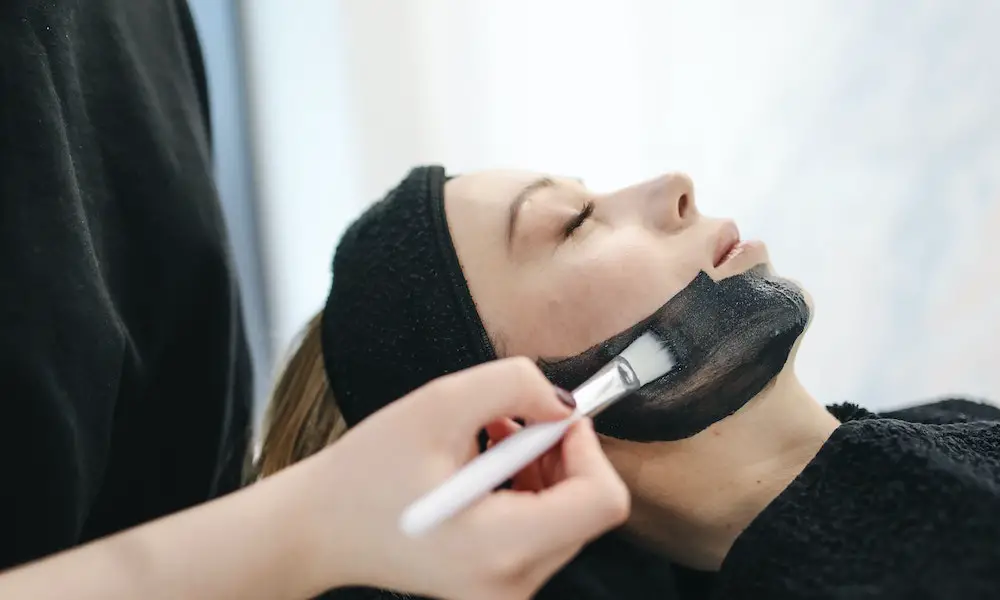Face masks have become a staple in our skincare routines, and with good reason. They offer a quick and effective way to address a variety of skin concerns, from blemish-prone skin to oily skin. In this comprehensive guide, we’ll explore the best face masks for skincare, their benefits, and how to choose the right one for your unique skin needs.
The Importance of Face Masks in Skincare
Face masks have been used for centuries as a means to rejuvenate and improve the complexion. Today, they continue to be a crucial component of a comprehensive skincare regimen. These products offer several advantages, including:
Face masks are designed to deeply cleanse the skin. They work to unclog pores and remove impurities, making them ideal for blemish skin care.
Some face masks are formulated to hydrate and moisturize the skin, leaving it soft and supple. This is particularly helpful for those with dry or dehydrated skin.
Many face masks contain exfoliating ingredients that help remove dead skin cells, promoting a smoother, more radiant complexion.
Certain masks are formulated to tighten and firm the skin, which can be especially beneficial for those looking to combat the signs of aging.
There are also face masks designed to address oily skin concerns. These products help regulate excess oil production, reducing the risk of clogged pores and acne breakouts.
Now, let’s delve deeper into face masks for blemish skin care and skin care products for oily skin.

Face Masks for Blemish Skin Care
Blemishes, such as acne, pimples, and blackheads, can be frustrating to deal with. Fortunately, there are face masks specially designed to target these concerns.
Clay masks are renowned for their ability to absorb excess oil, unclog pores, and exfoliate the skin. They often contain ingredients like kaolin or bentonite clay, which draw out impurities and leave the skin feeling fresh and clean. Clay masks can be an excellent addition to a blemish skin care routine, as they help prevent breakouts and promote a clear complexion.
Salicylic acid is a beta hydroxy acid (BHA) that’s highly effective at penetrating the pores and dissolving the sebum and dead skin cells that can lead to blemishes. Salicylic acid masks help exfoliate the skin, preventing clogged pores and reducing the appearance of acne. These masks are particularly useful for those with oily and acne-prone skin.
Tea tree oil is known for its antibacterial and anti-inflammatory properties. Face masks containing tea tree oil can help reduce redness and inflammation associated with blemishes, making them an excellent choice for those with sensitive skin that’s prone to breakouts.
Oily skin can be a challenge, but the right skincare products, including face masks, can help manage excess oil production and maintain a healthy complexion.
Activated charcoal is an excellent ingredient for those with oily skin. Charcoal masks work by absorbing excess oil and impurities, leaving the skin feeling fresh and matte. They can also help minimize the appearance of pores, making them a valuable addition to your skincare routine if you have enlarged pores.
It might seem counterintuitive to use hydrating masks for oily skin, but they can be quite effective. Oily skin often lacks hydration, which can lead to increased oil production as the skin tries to compensate. Hydrating gel masks can provide the moisture your skin needs without making it feel greasy, helping to balance oil production.
Witch hazel is a natural astringent that can help tighten the skin and reduce oiliness. Masks containing witch hazel can provide a refreshing and mattifying effect, making them suitable for those with oily skin.
How to Choose the Right Face Mask for Your Skin
Selecting the best face mask for your skin care needs involves considering your skin type and specific concerns. Here are some steps to help you make the right choice:
Determine if you have oily, dry, sensitive, combination, or normal skin. This will guide your choice of face mask.
Are you dealing with blemishes, aging, dryness, or sensitivity? Choose a mask that addresses your primary concerns.
Carefully read the ingredients list to ensure the mask does not contain any allergens or irritants. Look for key ingredients that match your skin needs.
Before applying a new face mask, it’s a good idea to do a patch test to check for any adverse reactions or allergies.
Consider how often you’ll use the mask. Some masks are suitable for daily use, while others should be used once or twice a week.
If you have specific skin conditions or concerns, it’s a good idea to consult with a dermatologist or skin care professional for personalized recommendations.
Conclusion
Face masks are versatile tools in any skincare routine, offering a range of benefits, from deep cleansing to hydration and blemish control. When selecting the best face mask for your skin care needs, consider your skin type, specific concerns, and ingredients that match your goals. With the right choice, you can enjoy the rejuvenating effects of face masks and maintain healthy, glowing skin. Whether you’re focusing on blemish skin care or seeking skin care products for oily skin, there’s a face mask designed to meet your unique needs. So, get ready to pamper your skin and elevate your skincare routine with the perfect face mask.
Exfoliate 1-3 times a week, depending on your skin type. Over-exfoliation can irritate the skin.
Yes, for some products like cleansers and moisturizers. However, you should use sunscreen in the morning and specialized night creams in the evening.
Assess your skin’s oiliness, dryness, and sensitivity. Skin types include oily, dry, combination, and sensitive.
Serums are concentrated with active ingredients and can address specific skin concerns like fine lines, dark spots, and hydration.
While not mandatory, eye creams can target delicate under-eye skin concerns such as puffiness and dark circles more effectively.
Yes, adjusting your routine for changing weather can help maintain skin health. Use lighter products in summer and richer ones in winter.
Results vary, but noticeable improvements may take 4-6 weeks. Be consistent
Some natural ingredients can be beneficial, but a balanced skincare routine with proven products is usually more effective.
##



